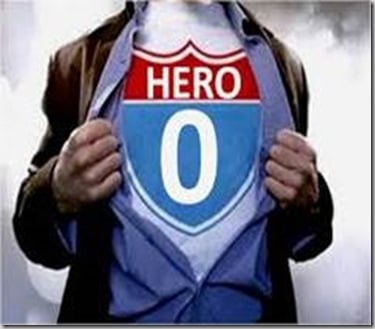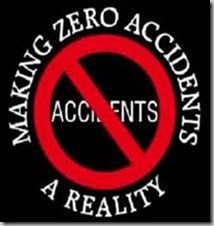Dr Rob Long’s recent article Forecasting Safety resulted in some great debate both here and on other forums. In this article Gabrielle discusses the language of zero and how it may have the exact opposite affect to what was maybe well intended. The people who take the time to read and have the courage to comment and ask questions on these articles are making a valuable contribution to learning and should be applauded.
The Zero Hero is Here to Save The Day!
Language is extremely powerful. But is it really something we give much thought? Words like kill, stab, explosion, fear, dread can manifest a negative emotion. Yet words like fluffy, bunny, cloud, marshmallow, cuddle can influence our emotions in a positive way. Words can be so powerful that they can actually influence our behaviour. This is reflected in Bargh’s (2005, 2007) research, which emphasises how symbols, language, words, colours, images and even temperature can affect the unconscious. His works show, for example, that we can slow a person’s walking pace down with words associated with old age, or influence a person to like or dislike someone based on whether they are holding a cold or hot cup of coffee.
Why do we need to reflect on this? Because organisations and businesses choose to use ‘buzz’ words that they feel state what they believe in. Words such as ‘zero harm’, ‘zero injury’, ‘zero tolerance’ and the like but do they really know how powerful these ‘buzz’ words are?
I was explaining to a colleague, Michelle, the other day about the power of language. I used the analogy of educating children. With this we would start a tally each time they made a mistake or broke the rules. Everyday we would reflect on the tally in the hope that each child had no strikes against their name. The kids would soon learn that they must do no wrong, make no mistakes, or break a rule EVER in order to prevent a strike against their name. I asked Michelle how long she thought the kids would last before they soon become deflated and dis-engaged with the whole process?
Michelle understood the power of this metaphor. But do we understand the power of this metaphor in organisations? What are the by-products of implementing this strike system? Perfectionism, lack of creativity, lack of autonomy, dehumanising to name a few. Do we even think about where this may end? What trade-offs?
I think not!
Businesses and organisations are using the zero ‘buzz’ words everywhere without thinking through where this is taking them, where it will end up or worse still how this is affecting their people. Maybe altruistic in thought yet no forethought or analysis of its trajectory.
I was saddened to see a ‘zero tolerance’ logo at the footer of another colleagues email the other day. This was a company I had worked for as the National Safety Manager and they always had a big safety focus. It really shocked me to see that they had taken on this ideology. I wonder if they had really thought it through? I wonder if they had understood the trajectory, by-products, trade offs by implementing this discourse.
I think not!
The ideology of ‘zero’ is like having an ideology of perfectionism in your workplace. If you do not achieve zero what then? How does a perfectionist goal like zero impact on your people when they don’t achieve it? Do they believe in it? Do they believe it is achievable? Or worse still do they believe they’re not good enough if they don’t achieve it?
Has anyone ever achieved zero?
So next time you are wondering why worker engagement is difficult, or you have a lack of ‘buy-in’ or worse still a struggling organisational culture take a good look at your organisational language. Look at your ‘buzz’ words or slogans and map out what they are saying, where you are going with them and are they impacting negatively on your people.
GABRIELLE CARLTON
M | 0407 220 094
E | gabrielle@resilyence
W | www.resilyence.com
L | http://www.linkedin.com/in/gabriellecarlton





Do you have any thoughts? Please share them below